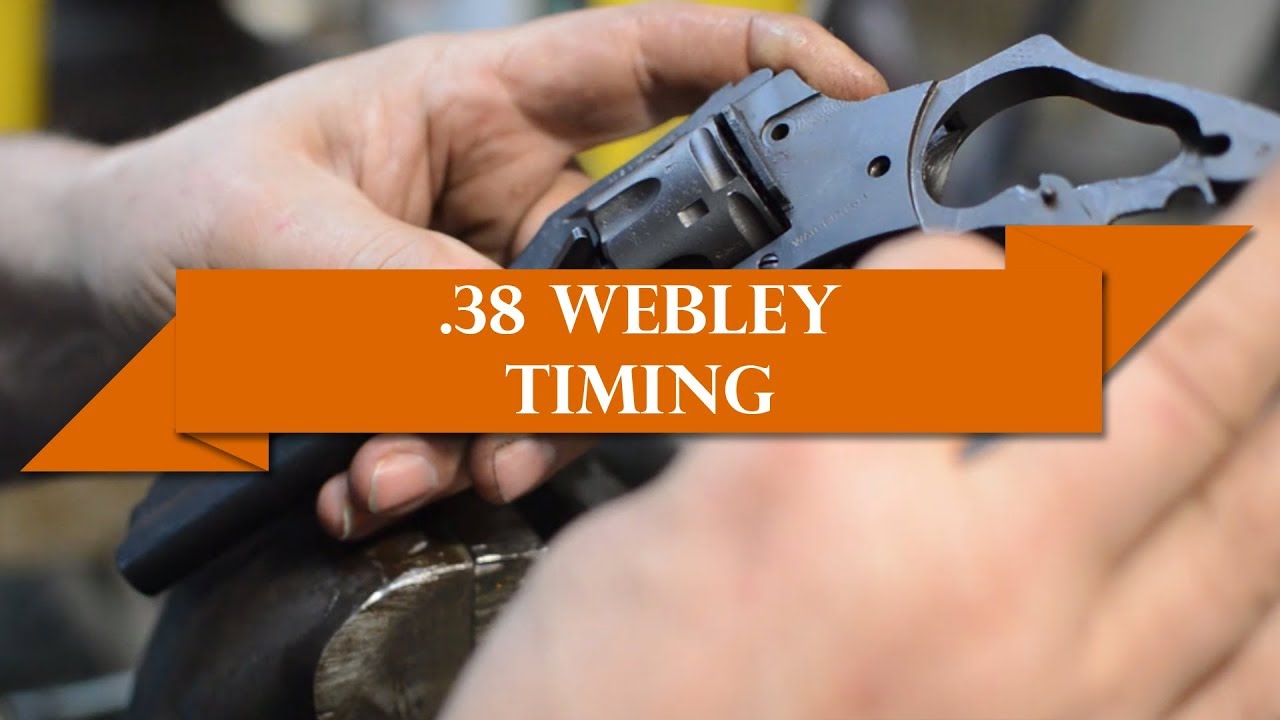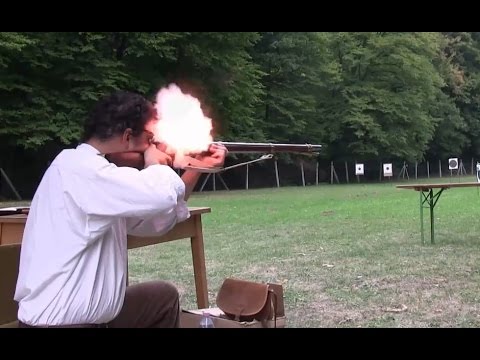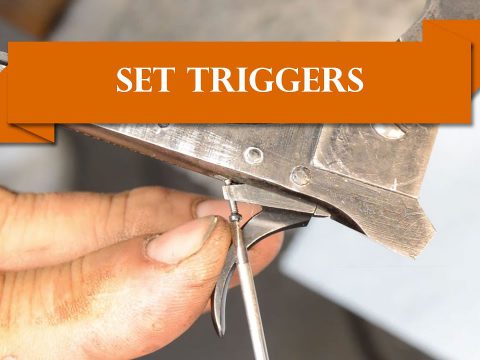Once again, we have video today from the monthly 2-gun Action Challenge Match. This time, I thought it would be interesting to do a bit of a historical matchup, and look at the oft-discussed question of how much of an advantage a shooter with an Enfield has over one with a Mauser. So, with the help of my friend (and match co-director) Karl, we made this both a competition and an experiment. I brought a pair of Enfields (No1 MkIII* Enfield, made by BSA in 1916 and a 1942 No2MkI** revolver) and Karl had a pair of Mausers (German K98k scrubbed and remarked by the Yugoslav army and 1930s C96 Broomhandle). Karl is definitely the better shooter between us, so the question was:
To what extent does my faster rifle action allow me to make up for my inferior shooting?
Conclusions, in Brief
Having a fast action will not make up for inferior shooting, at least in a course of fire that requires movement, careful aim, and multiple targets.
Conclusions, in Depth
After watching the video, one is tempted to say that my Enfield and I could have won several of the stages if not for loading trouble, malfunctions, and the target order goof on stage 2 – but Karl and his Mauser also had several easy opportunities to do better, like his missed shots at the end of stage 3. If we want to judge the two rifles against each other, we have to accept all the variables involved.
* Magazine. The Enfield does have twice the capacity (10 rounds), but it is also slower to reload and always prone to rimlock if the shooter doesn’t make sure to load his clips properly (rounds 2 and 4 sitting atop the rims of rounds 1, 3, and 5). The Mauser may only hold 5 rounds, but it is faster and smoother to reload and less susceptible to malfunction. For courses of fire between 7 and 10 rounds, the Enfield magazine is a definite advantage, but beyond that point things even out pretty quickly.
* Bolt speed. The Enfield is definitely faster, and it can pretty easily shoot circles around a Mauser if the game is a single target and single shooting position (like the famous “Mad Minute” drills).
* Reliability. Granted this was a 1-sample test, but the Enfield was definitely more vulnerable to problems from grit. The cock-on-opening Mauser provides better leverage for extracting a sticky case and more controlled feeding of cartridges. My speed advantage on stage 4 (firing 5 rounds into a paper target from a static position) was nullified by the sticky first round that I had to bring the Enfield off my shoulder to clear.
Really, the most significant variable was shooter skill. The ability to make first-round hits, get quick sight pictures and smooth trigger pulls, and transition quickly between targets while moving and under stress was much more important than a speed or capacity advantage in anything other than a static target range scenario.
http://www.forgottenweapons.com

At Forgotten Weapons I think the most interesting guns out there are the most obscure ones. I try to search out experimental and prototype weapons and show you how they work, in addition to more conventional guns that you may not have heard of before. You’re much more likely to find a video on the Cei Rigotti or Webley-Fosbery here than an AR or Glock. So, do you want to learn about something new today? Then stick around!





